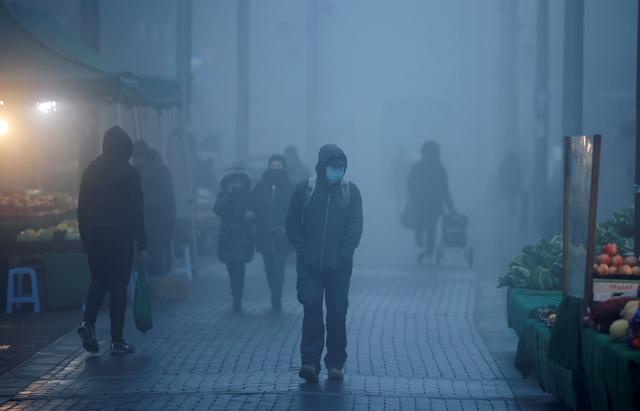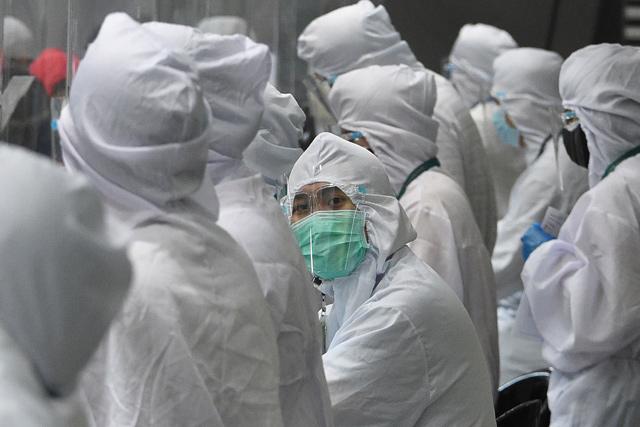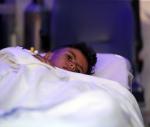You are here
WHO says no return to normality for 'foreseeable future'
By AFP - Jul 14,2020 - Last updated at Jul 14,2020

Members of Bungoma County Isolation Team carry the coffin of Dr. Doreen Lugaliki, 39, the first Kenyan doctor who died of the COVID-19 coronavirus in Nairobi, during her funeral in Ndalu, western Kenya, on Monday (AFP photo)
GENEVA — The World Health Organisation warned Monday that there could be no return to normality any time soon as too many countries were bungling their response to the coronavirus pandemic.
After a daily record of 230,000 new cases of COVID-19 were reported to the WHO on Sunday, the UN health agency said the pandemic was only going to get worse unless people stuck to the basics of physical distancing, handwashing and wearing masks.
WHO chief Tedros Adhanom Ghebreyesus warned that countries that were easing their way out of lockdowns were now witnessing a resurgence of the virus because they were not following proven methods to reduce risk.
"I want to be straight with you: There will be no return to the 'old normal' for the foreseeable future," Tedros told a virtual news briefing.
"Let me blunt: Too many countries are headed in the wrong direction.
“The virus remains public enemy number one, but the actions of many governments and people do not reflect this.”
He said mixed messages from leaders were undermining trust.
If governments do not roll out a comprehensive strategy to suppress transmission of the virus, and if population do not follow basic public health principles, “there is only one way this pandemic is going to go,” he said.
“It’s going to get worse and worse and worse.”
Meanwhile, Latin America surged past the US and Canada to become the world’s second worst-hit region for virus deaths on Monday as a Spanish court blocked a move to lock down some 200,000 people.
South Africa meanwhile reimposed a nationwide curfew to prevent a “coronavirus storm” from ravaging the continent’s hardest-hit nation.
Since the start of July, nearly 2.5 million new infections have been detected across the globe, with the number of cases doubling over the past six weeks, according to an AFP tally based on official figures.
And with cases surging in Latin America, the continent on Monday had officially declared a total of 144,758 deaths, passing the 144,023 recorded in the United States and Canada.
It now stands second only to Europe, where 202,505 people have died.
Although life in parts of Europe has been returning to some semblance of normality, authorities across the continent are worriedly watching dozens of areas where cases have resurged.
Concerned by a spike in the town of Lerida in Spain’s north-eastern Catalonia region, officials on Sunday ordered nearly 200,000 residents to stay home in the first such order since the country’s lockdown ended on June 21.
But early Monday, a local court suspended the measure as “contrary to law” despite concerns over the scale of the outbreak — one of scores being monitored across badly-hit Spain, where the virus has killed more than 28,400 people.
Fears of a second wave also forced South Africa to reimpose a nationwide curfew on Sunday, with President Cyril Ramaphosa warning the country faced a “coronavirus storm” that was “far fiercer and more destructive” than any before.
With new infections topping 12,000 per day — or 500 per hour — South Africa has reimposed a night curfew as well as a ban on alcohol sales that was lifted barely six weeks ago.
The Philippines also moved to reimpose a two-week lockdown on some 250,000 people in Manila as new infections soared just six weeks after the capital emerged from one of the world’s longest lockdowns.
Spike on US
bases in Japan
Meanwhile in Japan, two US Marine bases on Okinawa island have been locked down after a spike in cases with dozens infected and local officials expressing “serious doubts” about the US military’s containment efforts.
Other restrictions were imposed on seven other Marine bases on the southern Japanese island where tens of thousands of US servicemen are stationed and where nearly 100 new cases have been detected in recent days.
The move came after a weekend in which US President Donald Trump wore a face mask in public for the first time, as he visited veterans at a hospital near Washington.
The worst-hit country in the world, the US has suffered 135,171 deaths and 3,301,820 cases, with surveys showing Americans are unhappy with how Trump has handled the crisis.
Across the planet, the pandemic has infected nearly 13 million people, killed over 566,000 and triggered massive economic damage in the seven months since it was detected in the Chinese city of Wuhan.
In Latin America, Brazil accounts for almost half of the continent’s recorded fatalities.
Mexico has become the country with the fourth-highest number of COVID-19 fatalities in the world, climbing to a total of 35,006 deaths and surpassing Italy.
And Sri Lanka ordered government schools across the nation to shut Monday — just a week after they reopened — following a surge in new cases.
The latest high-profile personality to test positive for COVID-19 was Bollywood superstar and former Miss World Aishwarya Rai.
‘Tax us more’: millionaires
With the global economy battered by the pandemic, more than 80 millionaires on Monday urged governments around the world to hike taxes on the super-wealthy to help fund the recovery.
In an open letter, “Millionaires for Humanity” said they should be taxed higher, “immediately, substantially, permanently”.
“As COVID-19 strikes the world, millionaires like us have a critical role to play in healing our world,” wrote the signatories, among them Ben and Jerry’s ice cream co-founder Jerry Greenfield and screenwriter Richard Curtis.
“No, we are not the ones caring for the sick in intensive care wards, we are not driving the ambulances.”
“But we do have money, lots of it. Money that is desperately needed now and will continue to be needed in the years ahead, as our world recovers from this crisis.”
Meanwhile reclusive Turkmenistan, one of a handful of countries yet to declare a single coronavirus case, on Monday suggested residents wear masks as a precaution against “dust”.
The health ministry said the call was due to “high concentrations of dust” in the air and also asked residents to maintain social distancing of at least 1 metre, but gave no explanation as to why.
Related Articles
HONG KONG — Millions of people faced new coronavirus restrictions on Wednesday as infections surge, but in one sign of hope, an American fir
PARIS — Coronavirus deaths topped 400,000 on Saturday in Europe, the world's second worst-hit region, as parts of the continent began to reo
GENEVA — The World Health Organisation has warned there might never be a "silver bullet" for the coronavirus, as Australia's second-largest

















